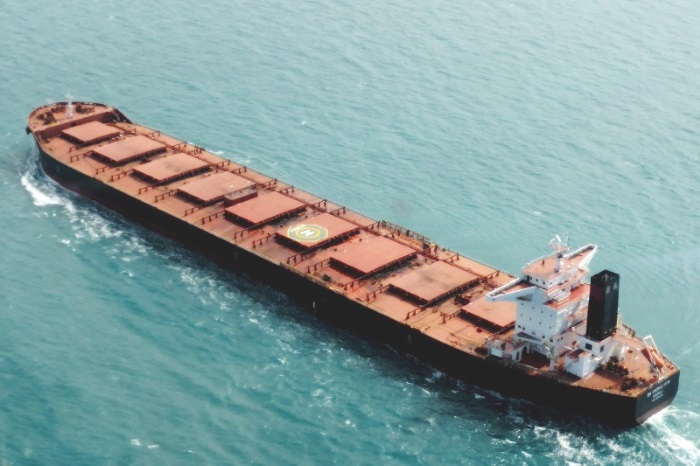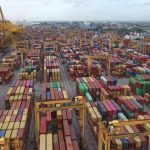The dry bulk market has logged eight consecutive increases, prior to yesterday’s halt. In its latest weekly report, shipbroker Xclusiv commented that “everyone is watching the “crazy” rally in the dry market. On Friday 1st December 2023, the Baltic Dry Index stood at 3,192 points, the highest point since 24th May 2022, having a more than double increase of 128% since the 1st of November. Baltic Panamax and Supramax indices have 20 and 18 consecutive positive closings, risen by 57% and 33% respectively month to date, while the Handysize index counts 13 consecutive positive closings and has just risen 19%. All three indices are at their highest levels of more than 13 months. BPI at 2,341 points is at the highest point since 6 July 2022, BSI at 1,489 points is at the highest point since 27 October 2022 and BHSI hasn’t seen the 773 points mark since 14 November 2022. The index that has outperformed all the others is the Cape index. BCI has made an impressive rally of 84% within the week, while the increase since 1st November 2023 is about 228% (the index has tripled within a month). The 6,237 points are the highest point the index has reached since 21 October 2021, more than 24 months ago”.
The shipbroker added that “on 29 November 2023, the daily increase of USD 7,140 in the Baltic 5 Routes Capesize Time charter Average is the highest daily increase since 2010, with the BCI 5T/C at USD 46,681 /day on Monday 4 December 2023. China continues the thermal coal imports as in November they reached about 29.5 million metric tons, almost 20% more than October’s 24.62 million and just 0.5 million less than May’s 2023 imports. Australia has delivered about 7.3 million metric tonnes in November, a significant increase from October’s 4.3 million. These are the highest monthly imports since Beijing lifted its informal ban on imports from Australia. As for the Chinese iron ore stocks, these are around 103-105 million metric tonnes since the mid of October 2023, while in the same period of 2022, there were around 135-140 metric tonnes and 146-150 million in 2021”, Xclusiv said.
Meanwhile, “moving to the wet market, on November 30, Saudi Arabia successfully persuaded several other OPEC+ producers to join its voluntary oil supply cuts. Additionally, the country secured an agreement from Russia to intensify its cuts in the first quarter of 2024. Also, during the OPEC meeting, it was affirmed that Brazil is set to join the OPEC+ alliance starting January 2024 but not as a full member. This strategic inclusion marks the integration of South America’s largest oil producer into the alliance, thereby enhancing the collective market influence of the group.
Presently, Brazil boasts a crude oil production capacity of approximately 3.2 million barrels per day and serves as a significant supplier to China. Notably, due to its predominantly medium-sweet crude output from offshore basins, Brazil is not anticipated to partake in production cuts. Asian refiners exhibited a general lack of concern in response to OPEC and its alliance’s renewed commitment to restricting crude production and exports throughout the early months of 2024. This is largely attributed to the anticipation that major Middle Eastern suppliers will persist in prioritizing their clientele in the Far East, ensuring stable term contractual volumes. The tanker sector is poised to experience a muted impact from the newly imposed OPEC+ production cuts. This is attributed to alternative producers opting to ship barrels over longer distances, thereby maintaining positive prospects for the sector”, the shipbroker concluded.
Source: Hellenic Shipping News






